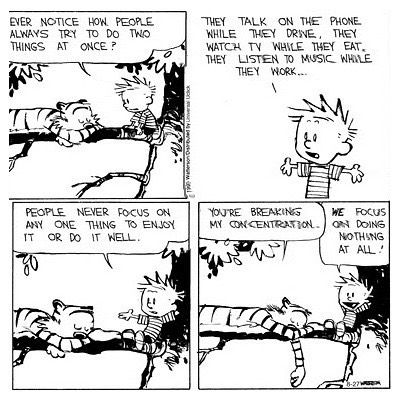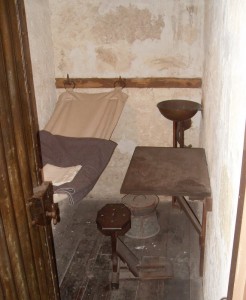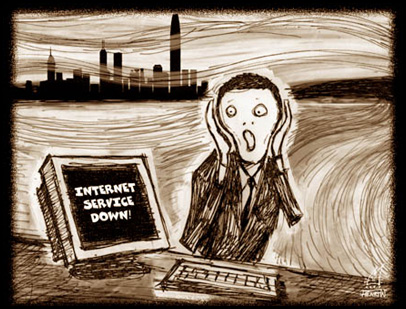So has my Muse fled the scene forever, or is she merely suffering pandemic burnout?
Psychologists are reporting a rise in “pandemic burnout” as many people find the current phase of lockdowns harder, with an increasing number feeling worn out and unable to cope.
The Guardian
So here I’ve parked, this past year, largely confined to home with computers and ideas for books on all sides, shielded from such distractions as a social life. Liberally supplied with food, water, tea and Sara’s companionship.
What good luck, eh? But no. For one thing, creative focus actually demands a certain class of distraction, at the same time other types of distraction are anathema. (Why authors make notoriously bad housemates.) I feel I must add a note here: I wouldn’t want anyone to think I’m being critical of Sara — I’m not. Far from it; she’s bucking for sainthood, in my view.
Most destructive of the creative project, I’m locked up here with my internet connection. That basically spells death to the Muse.
At this point, I’ll refer to something I first posted nine years ago. Sad to say, nothing’s really changed in all those years — except the vast and ever-expanding sticky web of gadgetry and digital connection has me even more firmly in its grip. The algorithmic tweaks and nudges come ever more often, while any focus left over for writing fiction dwindles to vanishing point.
My laptop and cell phone are each quite a lot smarter, and now they gang up with my spiffy new smartwatch. And the algorithms know exactly how to get my attention when they want it, just as Sara knows what the scent of popia thot does to me in the morning, or mention of pizza delivery in the evening.

From nine years ago: “Some good things to do with an Internet connection“
“The Joy of Quiet,” a story by Pico Iyer in the NY Times (29 Dec. 2011)resonates with something I proposed a week ago at a Christmas party.

I’d been talking about plans to go away for a few weeks to finish a novel in draft. As usual, when such an idea is broached, people were quick to say things such as, “Hey, I know a great place on the coast down south” or “My uncle has a yacht crewed entirely by world-class lady beach volleyball players winding down between tournaments.” That kind of thing is all very well, but what I really need is somewhere barren of interesting people to chat to (including beach volleyball players), at least one room with a blank wall and no view of wonderful scenery and, most important of all, no Internet connection. In fact, I’d been thinking of some grubby little upcountry hotel here in Thailand.
This is not mere eccentricity. Lots of writers feel the same way, I believe. At least one successful writer (I believe it was Nicholas Carr, in The Shallows:What the Internet Is Doing to Our Brains) goes so far as to say no one can write a book in the vicinity of an Internet connection. That may be no exaggeration.
At this point my Sara, as is her wont, interrupts. “All you need is self-discipline,” she says.
Uh-huh. That’s right. I don’t even have the self-discipline to activate Freedom, a program I installed on my computers that allows you to disable your communications programs for anywhere up to eight hours at a time (see “Addictions, spinal deficiencies and disciplinary infinite regresses”).

But let’s get back to my proposal, which will make both me and some obliging investor rich overnight. All I need is enough cash to buy and renovate a smallish hotel, preferably here in Bangkok.
Here’s the deal. We subdivide the joint into windowless cells, each of them equipped with comfortable office chair, desk, adjustable lighting, cot, a basic toilet and washroom, coffee machine, and, by default, no Internet connection. Oh, yeah–and a solid door that unlocks only from the outside.
Whoa. We’ll have writers queuing up to pay our exorbitant rates for incarceration till they finish their book in draft or else cry uncle (for which we’ll charge them a hefty penalty). The punters can order food which, for modest charges, our staff will slip through a slot of the sort used in solitary confinement in all the best prisons. Writing supplies, computer repairs, etc. will be provided in the same way.
The real money, though—and this, I have to admit, is pure genius—will come from what we’ll charge for temporary access to the Internet. Clients who just can’t manage the cold-turkey route may submit a formal written request, agreeing to pay ridiculous sums by the minute for the privilege of being allowed online for a stipulated time. (Of course clients will also have to sign an initial agreement that protects us from charges of kidnapping and unlawful detention.)
So we provide a much-needed service for our age, amassing heaps of good karma at the same time we get obscenely rich.
This idea’s time has come. As I read Pico Iyer’s article, I kept feeling he was on the verge of stumbling upon it himself. I await good news from prospective investors.
Any good ideas for what to call this facility, which in my mind is already becoming an international chain? Mistress Muse’s No Mercy Mansion isn’t quite right, though it is pretty alliterative.
In fact I did get away, all those years ago, and I did finish another novel or two. But my current situation isn’t really doing it for me. My Muse has fled the scene. Our pandemic provides the wrong kind of seclusion — it’s time to go over the wall again.



A comment from Bill the Mathematician:
“I might have mentioned a historical or invented example of some poor soul whose publisher walled him up in a room, with a small opening through which food & drink would be passed, but only when the poor soul within had pushed enough sheets of foolscap out through the hole. Said example would, ideally, have produced a masterpiece, thereby proving the concept to both investors and clients.”
Bill also reports he isn’t able to leave comments via mobile devices, which leads me to believe I have more to learn about WordPress, if not existence in general.
I cant talk for people who needs to be creative.
Of course, I understand they need some sort of inspiration, which they mostly get from activities.
But one thing is for sure, back in Norway, people are complaining like never before.
This is of course because the Norwegians are among the most spoiled self-loving brats on the globe.
An extremely spoiled nationality due to the country’s huge wealth, which has grown steadily the last 30-40 years, thanks to the Oil and Gas export.
This has again made Norwegians into an extremely content people, who seems to complain about anything which is not going their own way.
The ongoing pandemic is almost a blessing in disguise for Norwegians, since they can complain even more, and tell everybody online (and social media) about how terrible it is to not being able do everything they want to.
Ahhhh, deep breath…..my rant is finished.
PS.
it was your excellent post here Collin, which prompted my rant.
,-)
,-)
Rgds
Kai
Thanks, Kai, for the comment. … In my infrequent visits back to Canada over the years, I believe I’ve noted something similar — people who appear to me incredibly well off tend to complain bitterly about hard times and how everything is going to hell. … For my part, as a starving writer I accept my circumstances, wherever I happen to be enjoying them, as the simple nature of things for those of my ilk.